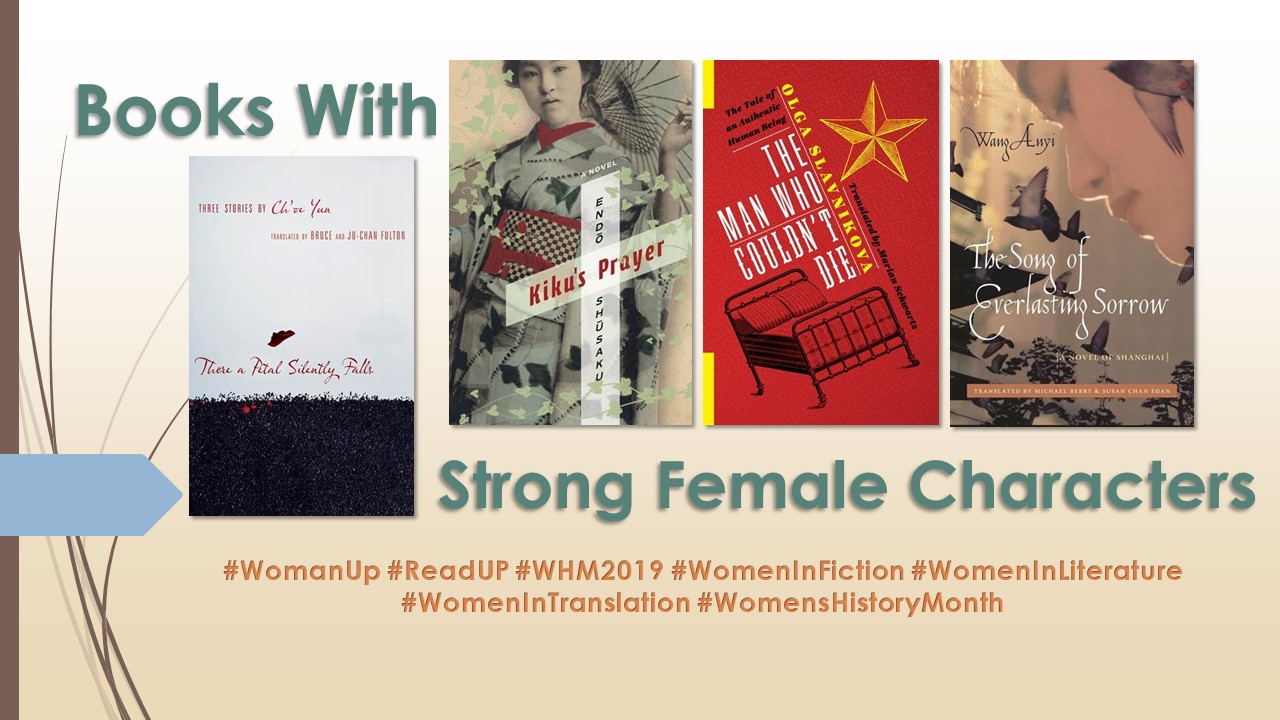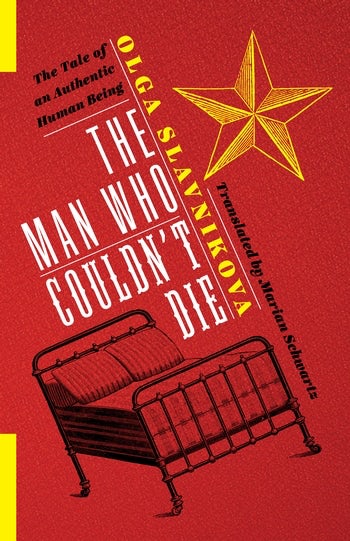Weekend Reading List: Russian Literature in Translation

Women In Translation Month is winding down to a close, but you can still expand your literary horizons to include more works of Russian Literature authored by women. Our list below is split into two parts, first up is contemporary works of Russian literature, and the second half is Jane Austen-like works from 19th century Russia. And remember, today is your last day to enter our book giveaway, where you have the choice of winning either Klotsvog or The Man Who Couldn’t Die. Enter by midnight tonight!
• • • • • •
Contemporary Russian Literature
Kicking off this weekend’s reading list is one of this week’s featured titles, Klotsvog, by Margarita Khemlin and translated by Lisa C. Hayden with a foreword by Lara Vapnyar. Meet Maya Abramovna Klotsvog. She’s had quite a life, and she wants you to know all about it. Selfish, garrulous, and thoroughly entertaining, she tells us where she came from, who she didn’t get along with, and what became of all her husbands and lovers. But even more than that, she lives a Post-World War II Soviet Union as a Jewish woman, and the war looms over Klotsvog, and the trauma runs deep. As do the ambiguities and ambivalences of Jewish identity. Khemlin unfurls a retelling of the Soviet Jewish experience that integrates the historical and the personal into her protagonist’s vividly drawn inner and outer lives.
Read this post by Lisa C. Hayden to discover why Klotsvog is the perfect beach read.
Next is our second featured title this week, The Man Who Couldn’t Die by Olga Slavnikova and translated by Marian Schwartz. In the chaos of early-1990s Russia, the wife and stepdaughter of a paralyzed veteran conceal the Soviet Union’s collapse from him in order to keep him—and his pension— alive by creating a world that doesn’t change, a Soviet Union that never crumbled. After her stepfather’s stroke, Marina hangs Brezhnev’s portrait on the wall, edits the Pravda articles read to him, and uses her media connections to cobble together entire newscasts of events that never happened Meanwhile, her mother, Nina discovers that her husband is conspiring as well—to kill himself and put an end to the charade. The Man Who Couldn’t Die is a darkly playful vision of the lost Soviet past and the madness of the post-Soviet world that uses Russia’s modern history as a backdrop for an inquiry into larger metaphysical questions.
Read this Q&A to find out what translator Marian Schwarts considered when translating this humorous work.
A work also grappling with a changed reality in post-Soviet Russia is Found Life: Poems, Stories, Comics, a Play, and an Interview by Linor Goralik, edited by Ainsley Morse, Maria Vassileva, and Maya Vinokour. In this multifaceted work, speech —condensed to the extreme— captures a vivid picture of fleeting interactions in a quickly moving world. Goralik’s works evoke an unconventional palette of moods and atmospheres through accumulation of unexpected details and command over colloquial language. She is a keen observer of the female condition, recounting gendered tribulations with awareness and amusement. From spiritual rabbits and biblical zoos to poems about loss and comics about poetry, Goralik’s colorful language and pervasive dark comedy capture the heights of ridiculousness and the depths of grief.
Listen to a conversation with Linor Goralik with the NYU Jordan Center.
19th Century Russian Literature
Travel back to 1800s Russia with A Double Life, by Karolina Pavlova and translated by Barbara Heldt. In this work, Pavlova weaves us the story of Cecily, a young girl in aristocratic high society who is getting ready to be married off. Not by her own will, but as per the wishes of her mother; her best friend, Olga; and Olga’s mother, who means to clear the way for a wealthier suitor for her own daughter by marrying off Cecily first. Cecily’s privileged lifestyle only makes her naive to the deception going on around her, and it is only in her seclusion of her bedroom is her imagination freed. Pavlova subtly speaks against the limitations placed on women and especially women writers, which translator Barbara Heldt highlights in a critical introduction. Among the greatest works of literature by a Russian woman writer, A Double Life is worthy of a central place in the Russian —and international women’s literature— canon.
Read what translator Barbara Heldt says about how translation can give a book a second life.
Another tale of the duality of expectations versus reality for women in Russia is City Folk and Country Folk by Sofia Khvoshchinskaya and translated by Nora Seligman Favorov. This story of empowerment centers her story on a common-sense, hardworking noblewoman and her self-assured daughter living on their small rural estate. The antithesis of the thoughtful, intellectual, and self-denying young heroines created by Khvoshchinskaya’s male peers, especially Ivan Turgenev, seventeen-year-old Olenka ultimately helps her mother overcome a sense of duty to her “betters” and leads the two to triumph over the urbanites’ financial, amorous, and matrimonial machinations. Originally written under a male pseudonym, this brilliant and entertaining exploration of gender dynamics on a post-emancipation Russian estate offers a fresh and necessary point of comparison with the better-known classics of nineteenth-century world literature.
Read about the nineteenth-century #MeToo moment in this classic novel.
Fill your bookshelf with works by talented women in translation by taking advantage of our WITMonth sale! Check our website for the complete list of promotional titles and use coupon code WIT2019 at checkout to save 30% on your order.
Categories:Book of the WeekFictionLiterary StudiesRussian LiteratureTranslationWomen in Translation
Tags:a double lifeAinsley MorseBarbara HeldtCity Folk and Country FolkFound LifeKarolina PavlovaklotsvogLinor GoralikLisa C. HaydenMargarita KhemlinMaria VassilevaMarian SchwartzMaya VinokourNora Seligman FavorovOlga SlavnikovaRussian LibraryRussian LiteratureSofia KhvoshchinskayaThe Man Who Couldn't Die







